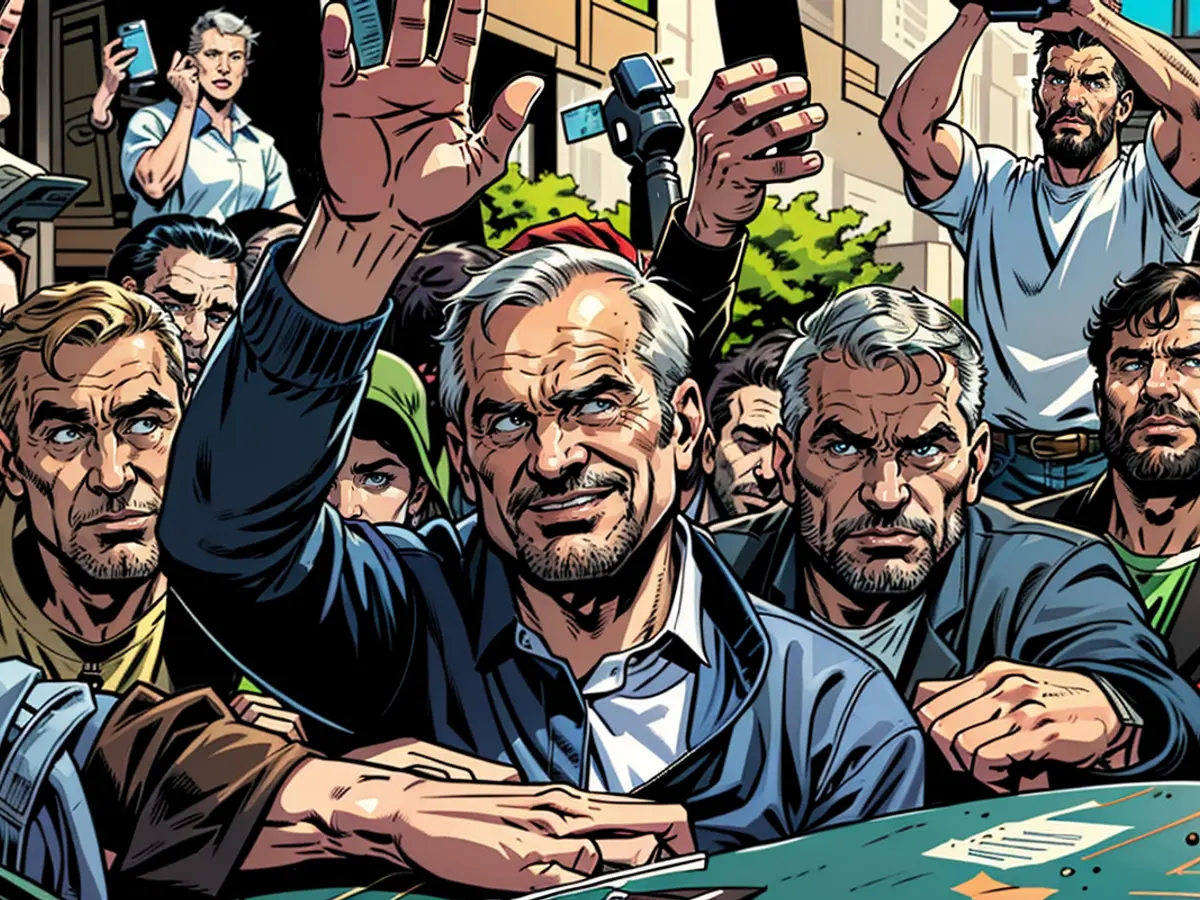Presidential election - Reformer Peseshkian ahead in Iran election
At the Iranian presidential election, moderate politician Massud Peseschkian leads with approximately 42.5% of the votes. Hardliner Said Jalili follows in second place with roughly 38.7% of the votes, as announced by the spokesperson of the election committee on state television. Since none of the candidates have achieved an absolute majority, the runoff will take place on July 5.
Mohammed Bagher Ghalibaf, the incumbent parliament speaker, ranks third with approximately 13.8% of the votes. Islamic cleric Mostafa Pourmohammadi received less than one percent of the votes.
Approximately 61 million voters were called to elect a new government head on Friday. The polling stations remained open past regular hours due to multiple extensions granted by the Interior Ministry. Out of the initial 80 applicants, the so-called Guardian Council, a powerful Islamic oversight body, only approved six as candidates for the election. Two of them withdrew.
Low voter turnout
The election committee reported a total of over 24 million valid ballots cast. With this, the voter turnout stands at historically poor 40%. The previous presidential election in 2021 saw a turnout of around 49%.
Many residents of the country, particularly young people, have lost faith in significant domestic political changes. Some activists, along with the imprisoned Peace Nobel laureate Narges Mohammadi, called for a boycott of the election. The president holds limited power in Iran as head of government, while the 85-year-old religious leader Ayatollah Ali Khamenei wields the most power as the country's supreme leader.
During the campaign, candidates debated mostly on ways to alleviate the massive economic crisis in the country. Iran, due to its contentious nuclear program, is subject to international sanctions and largely cut off from the global financial system. The country needs investments in the billions.
Iran's political system combines republican and theocratic elements since the 1979 Revolution. Free elections do not exist: The Guardian Council's oversight is always scrutinizing candidates' qualifications. Criticism of the system at its core is not tolerated, as shown by the suppression of protests in recent years.
In the upcoming run-off election on July 5, Massud Peseschkian and Said Jalili will face off, as no candidate achieved an absolute majority in the recent Iranian presidential election. The election in Tehran saw a significant drop in voter turnout, with only 40% of the 61 million eligible voters participating, lower than the 49% turnout in the 2021 election. Despite the low turnout, Said Jalili, a hardliner, received 38.7% of the votes, while moderate politician Massud Peseschkian led with approximately 42.5%.








